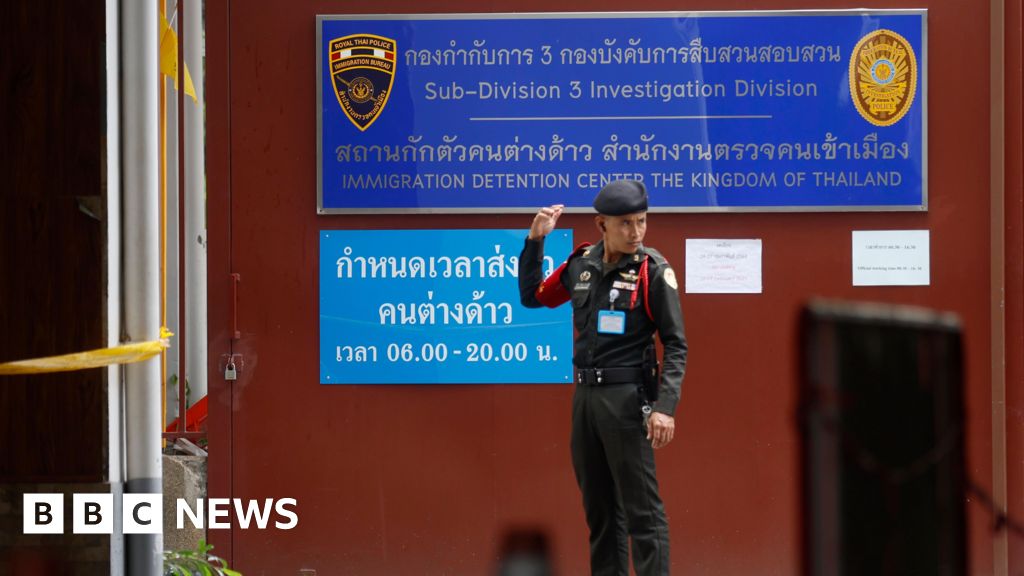
Thai authorities have confirmed the deportation of at least 40 Uyghurs to China, despite warnings from human rights organizations regarding the severe risks of torture and even death they may face upon return.
This group was reportedly flown back to the Xinjiang region of China on Thursday after spending a decade in a Bangkok detention facility.
China has faced accusations of committing crimes against humanity and potential genocide against the Uyghur population and several predominantly Muslim ethnic groups in the northwestern Xinjiang area. The Chinese government has vehemently denied these claims.
This marks the first instance of Thailand deporting Uyghurs since 2015.
The circumstances surrounding the deportation have largely been kept under wraps, prompting deep concern from both the United States and the United Nations.
Reports from Thai media indicated that early Thursday morning, several trucks—some with their windows covered—departed from Bangkok’s primary immigration detention center.
Shortly thereafter, the flight tracking service Flightrader24 revealed an unplanned flight from Bangkok via China Southern Airlines, which arrived in Xinjiang. The exact number of deportees remains unclear.
The Thai defense minister assured Reuters that the Chinese government had guaranteed the well-being of the individuals being deported.
While China stated that a total of 40 illegal immigrants from Thailand were repatriated, it did not confirm whether this group comprised Uyghurs.
According to the Chinese foreign ministry, “the repatriation was executed in line with the laws of China and Thailand, as well as international law and standards.”
Chinese state media claimed that the group had been “misled” by criminal organizations and had become stranded in Thailand after illegally leaving China.
Initially, Thailand’s Prime Minister Paetongtarn Shinawatra did not confirm the deportations when questioned by journalists.
She remarked, “In any nation, actions must comply with legal principles, international standards, and human rights.”
The deported individuals are believed to be the last remaining Uyghurs of over 300 who were apprehended at the Thai border in 2014 while fleeing oppression in Xinjiang.
Many had been granted asylum in Turkey, traditionally a safe haven for Uyghurs, while others were deported back to China in 2015, sparking widespread protests from international governments and human rights organizations.
Social media saw opposition lawmaker Kannavee Suebsang questioning, “What actions is the Thai government taking?” on Thursday.
“There should be no deportation of Uyghurs to face persecution. They have already spent 11 years in detention. We have violated their human rights for far too long.”
The detention facility where the Uyghurs were held—a center with no formal charges against them aside from unauthorized entry into Thailand—was known for its unsanitary and overcrowded conditions, resulting in the deaths of five individuals while in custody.
On Thursday, Human Rights Watch issued a statement warning that the repatriated group now faces a heightened risk of torture, forced disappearances, and lengthy imprisonment.
Elaine Pearson, the organization’s Asia director, stated, “Thailand’s transfer of Uyghur detainees to China constitutes a clear violation of the nation’s domestic and international legal obligations.”
She added that prior to the deportation, senior Thai officials had repeatedly assured both allies and United Nations representatives that these individuals would not be transferred.
Phil Robertson, director of the Asia Human Rights and Labour Advocates (AHRLA), remarked that the deportations completely dismantled the notion that the current Thai government differed from its predecessor regarding transnational repression and cooperation with authoritarian regimes.
Amnesty International condemned the deportations as “incredibly cruel.”
Bipartisan members of the U.S. House China Committee warned on Wednesday that these deportations “constitute a clear violation of international human rights standards to which Thailand is obligated under international law.”
The UN has expressed its deep regret regarding the deportations.
Xinjiang is home to approximately 12 million Uyghurs, the majority of whom are Muslim and reside in what is officially termed the Xinjiang Uyghur Autonomous Region (XUAR).
Uyghurs possess their own language, which bears similarities to Turkish, and identify culturally and ethnically with Central Asian countries. They constitute less than half of Xinjiang’s population.
In recent years, a significant influx of Han Chinese, the country’s ethnic majority, has been directed into Xinjiang, reportedly by state design to reduce the minority demographic.
China has additionally faced accusations of targeting Muslim religious leaders, imposing bans on Islamic practices in the region, and demolishing mosques along with burial sites.









